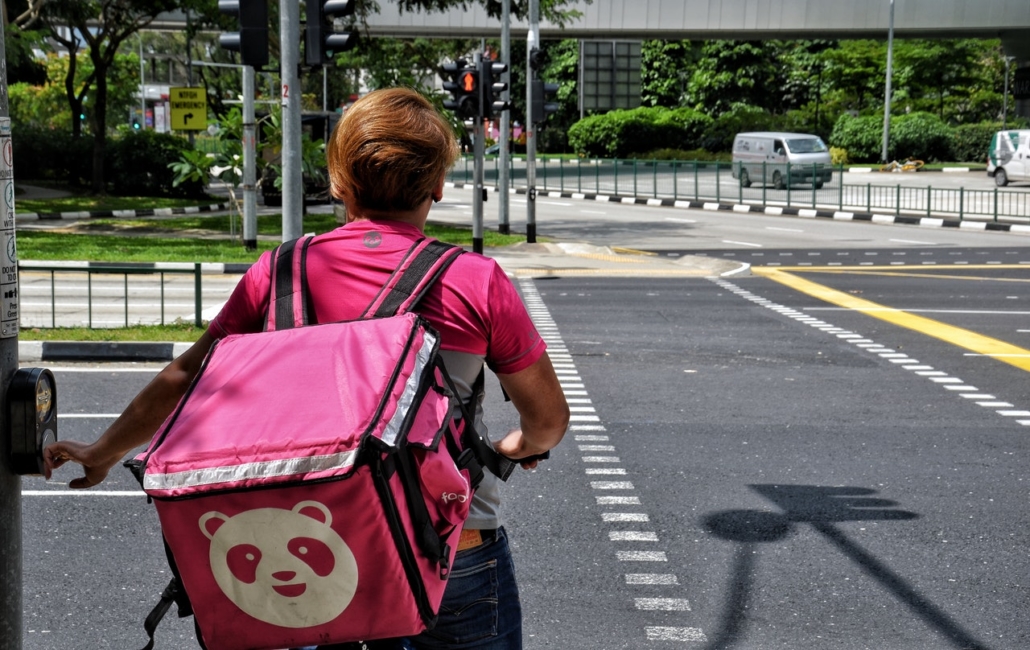How Delivery Apps Aided China During COVID-19
 When China was at the peak of its COVID-19 outbreak, unexpected lockdowns affected well over 700 million people. Hundreds of thousands of these people grew anxious and engaged in panic buying, leaving essential stores depleted. Many people suffered from a lack of necessary supplies as a result. However, within days, supplies from all around the world began flowing into China. In order to comply with lockdown measures, many people turned to digital delivery apps to continue receiving their basic necessities.
When China was at the peak of its COVID-19 outbreak, unexpected lockdowns affected well over 700 million people. Hundreds of thousands of these people grew anxious and engaged in panic buying, leaving essential stores depleted. Many people suffered from a lack of necessary supplies as a result. However, within days, supplies from all around the world began flowing into China. In order to comply with lockdown measures, many people turned to digital delivery apps to continue receiving their basic necessities.
Efficient Delivery
Despite its new uses during the pandemic, delivery technology is not a new concept in China. In fact, China has one of the most efficient delivery systems in the world. While other globally renowned companies, such as the U.S.-based e-commerce platform Amazon, pride themselves on rapid, two-day delivery, China’s home delivery apps can be at your door within minutes.
These digital delivery platforms, better known as wai mai xiao ge (which directly translates to “takeaway lad”), have flourished throughout the country. Whether users need to order takeout, groceries or even a portable phone charger, these delivery apps can do it within minutes. Though these platforms were originally seen as a convenient method to receive goods, they soon turned into a vital lifeline after China enacted stay-at-home measures during the COVID-19 pandemic.
Creating Jobs
Besides aiding those at home in need of essential goods, wai mai platforms have also greatly benefitted the deliverers themselves. Meituan Waimai, one of the most prominent on-demand delivery companies in China, created over 336,000 jobs for wai mai drivers as the coronavirus surged. These new jobs were vital opportunities for those who lost their primary source of income during the crisis.
Zhang Shuai, a 24-year-old delivery driver from Zhengzhou in Henan province, works in Shanghai, one of the largest and wealthiest cities in China. Shuai signed up to work with Meituan Waimai when COVID-19 cases began to grow because it was too difficult to find any other job. However, his delivery job with Meituan Waimai now provides him with $1,400 per month, a wage that is higher than the average urban salary in Shanghai.
Many workers from remote, rural villages also use these jobs with delivery apps as an opportunity to move to more urbanized cities and establish a less regimented life for themselves. While living in the village, many people from rural China worked in factories that often required a specialized skill set and a peer who could provide a recommendation for them. However, the same workers can get hired as a deliverer in a metropolitan city soon after verifying their identity and credentials. Once hired, they can receive better pay than what factory work would provide.
The Future of Meituan Waimai
As the pandemic continues, home delivery systems also continue to grow with it. Prior to the COVID-19 outbreak, Meituan Waimai was a $46 billion business. However, within the last few months, it has reached a record high at $100 billion amid the virus and is projected to continue growing from there, providing more job opportunities as it does so.
– Heather Law
Photo: Pexels
